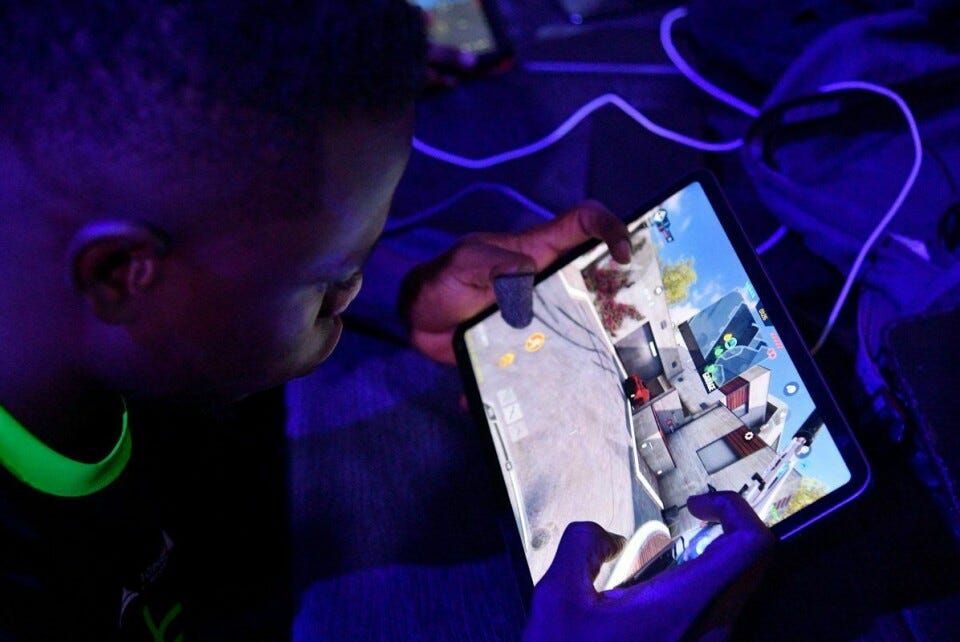The Next Billion Players: Why Africa’s Gaming Leap Is Bigger Than Entertainment
In 1999, a handful of cybercafés in Lagos introduced young Nigerians to networked PC games like Counter-Strike and Age of Empires. It was a subculture—hushed, dimly lit, and mostly dismissed as play with no future. Two decades later, those same “playgrounds” have become the seeds of an industry positioning Africa as the world’s next gaming and creative tech frontier.
This week, as Lagos hosts Gamathon 2025, the continent’s largest convention for video games, XR, animation, and digital media, one truth comes into focus: Africa’s gaming story isn’t about catching up—it’s about leapfrogging.
Themed “Bridge”, the convention is the culmination of a tour that touched Kenya, Ghana, and South Africa before landing in Nigeria. But beneath the panels, showcases, and investor dinners lies a deeper question: Is Africa finally ready to turn play into power?
From Entertainment to Economy
Globally, gaming is a $250 billion industry—bigger than film and music combined. Africa contributes only a fraction of that revenue, but its trajectory is staggering. With a median age of 19 and the fastest-growing mobile-first internet adoption rate, the continent isn’t just a consumer base—it’s the future home of the “next billion players.”
And here’s the shift: African creators are no longer content with being players alone. They’re building studios, designing characters, and crafting stories rooted in African mythologies, histories, and futures. Titles like Aurion: Legacy of the Kori-Odan (Cameroon), Rogue Star (Kenya), and Treasure Wars (Nigeria) aren’t merely games—they’re cultural exports.
What Gamathon 2025 signals is the recognition that gaming and creative tech are not side hustles of the creative economy. They’re central engines of job creation, youth empowerment, and global cultural influence.
Why Gaming Is Africa’s Test Case for Creative Tech
Unlike fashion or film—industries that have long battled piracy, weak IP frameworks, and policy neglect—gaming thrives in the digital ether. Games are downloaded, streamed, patched, and monetized online. They bypass some of the brick-and-mortar limitations that slowed Nollywood’s early growth.
But that doesn’t mean the path is smooth. Africa’s gaming ecosystem still faces three critical tests:
Infrastructure & Connectivity
High-speed internet and reliable power remain luxury items in many regions. A mobile-first strategy works, but without affordable data, gaming adoption can plateau.Funding & Investment
African studios raise a fraction of what their counterparts in Asia or Latin America secure. Gamathon’s pitch competitions and investor dinners are small steps toward bridging this financing chasm.Policy & Protection
Unlike South Korea, where state-backed policies fueled esports into a $1B industry, most African governments still classify gaming as “youth recreation” rather than a sector deserving structured incentives. Kenya’s new gaming and esports policy discussions may be a turning point—but scaling them continent-wide is the challenge.
Building Cultural Power Through Play
The genius of African gaming lies in its cultural positioning. Global studios may dominate the mechanics, but Africa owns the stories.
Take mythology: where Marvel scavenges Norse and Greek legends for billion-dollar franchises, African studios sit on a goldmine of folklore—Anansi the Spider from Ghana, Shango the thunder god from Nigeria, or Queen Nzinga from Angola. Imagine these legends rendered in VR or interactive role-playing games. That isn’t just entertainment—it’s cultural diplomacy.
Even more, games are now educational tools. Studios in Kenya and Uganda are creating titles that teach history, coding, and even climate awareness through interactive play. This aligns with what Gamathon co-creation sessions emphasize: games as tools for both learning and liberation.
What Africa Can Learn From Global Models
Africa doesn’t need to reinvent the wheel—but it does need to adapt global models strategically.
South Korea: State-backed esports turned Seoul into the global gaming capital, blending policy, broadband, and talent pipelines.
Brazil: Leveraged its youth demographic to attract global studios, while nurturing local developers.
Poland: A single breakout hit (The Witcher) turned Warsaw into a European gaming hub.
The question for Africa: What’s our Witcher? Which African-developed title will break into mainstream global consciousness and validate the continent’s role as both creator and competitor?
The Stakes Are Higher Than Games
When Michael Oscar, founder of Africacomicade, says, “The next billion players are coming from the continent”, it’s more than rhetoric. It’s a signal that gaming is a gateway economy.
Every step forward in gaming—whether through XR, animation, or digital storytelling—spills over into Africa’s creative tech ecosystem:
Animation studios hired for cutscenes evolve into standalone storytellers.
VR labs developed for games pivot into medical simulations and edtech.
Payments and monetization tools built for in-game transactions open new pathways for digital commerce.
Put simply: to invest in African gaming is to invest in Africa’s wider creative and tech future.
What Comes After Gamathon?
Conventions like Gamathon are catalytic, but they are not an endpoint. The real work begins when the lights dim and the exhibitors pack up.
Governments must codify gaming into policy, offering tax breaks, research incentives, and export support.
Investors need to think beyond “Silicon Valley clones” and recognize the ROI in Africa’s cultural-tech industries.
Creators must continue building not just games, but sustainable studios with IP ownership, licensing models, and global ambitions.
Because here’s the truth: without structure, Africa risks becoming the world’s “creative outsourcing hub”—supplying cheap labor, not global blockbusters.A Closing Note
From Nairobi to Accra, from Johannesburg to Lagos, a new generation is busy coding, animating, and storytelling in ways their parents never imagined. They’re not asking permission to join the global gaming industry—they’re demanding recognition.
Gamathon 2025 is more than an expo. It is a declaration: Africa isn’t waiting to be invited to the table of creative tech. It’s building its own console.
The controllers are in hand. The servers are live. The only question now is—will policy, investment, and global recognition keep pace with Africa’s players?
A guest post by
A curious mind exploring the crossroads of creativity and insight.




